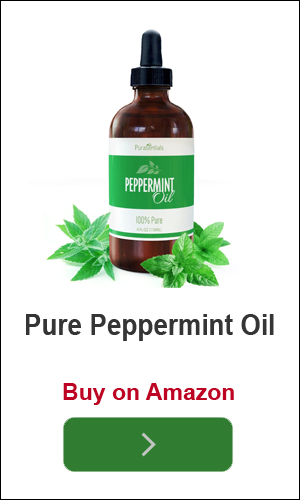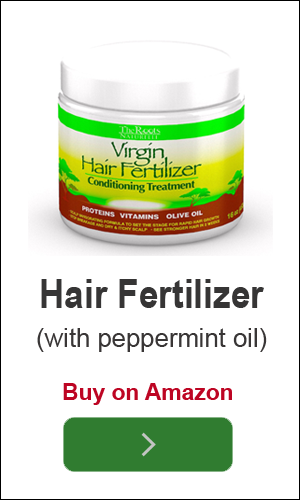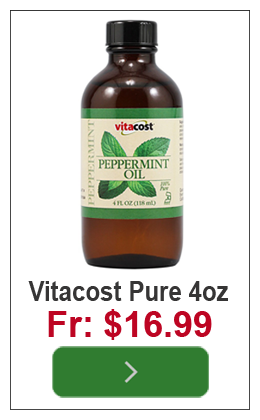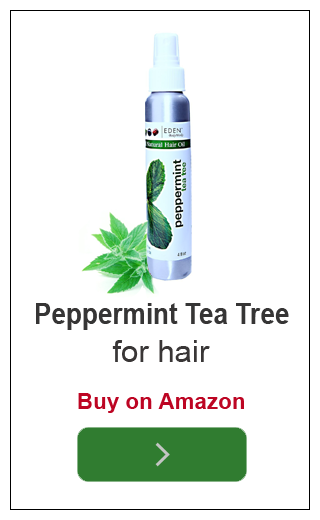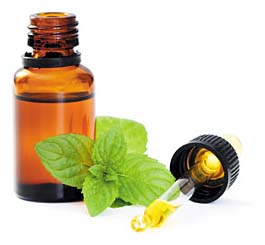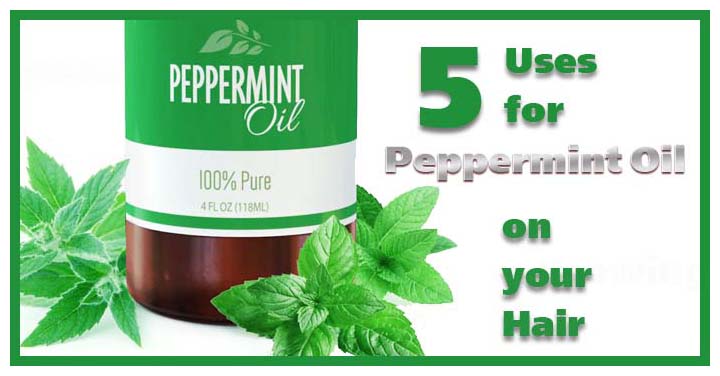
Peppermint Oil for Hair: Benefits For Health Skin and Hair
Peppermint oil is an excellent solution for hair and skin problems, however this is not its only function.
This essential oil also works as natural anti-bacterial or anti-inflammatory medication.
This is because it contains essential nutrients including vitamin A, vitamin C, calcium, magnesium, and a tonne more.
Let’s look at this in more detail.
Peppermint Oil as a Hair Treatment
The most popular peppermint oil uses are for the hair and for scalp treatment.
However, this oil is really strong so remember to mix it with water or carrier oil to prevent irritation.
If applied properly, peppermint oil can effectively treat dandruff, normalize scalp’s oil production, moisturize hair, promote hair growth, as well as prevent hair loss.
You can even use it as hair conditioner.
Peppermint Oil For Hair
Peppermint oil has been widely used in many countries for centuries as an effective hair treatment.
When applied properly, this oil works well to tackle many common problems such as dry scalp, hair loss, hair growth, head louse and much more.
The benefits of peppermint oil for your hair are wide and varied.
This article will take you though a complete list of potential uses and benefits of one of natures wonderful gifts.
1. Use As a Moisturizer
Peppermint oil is a strong moisturizer.
Depending on your preferences, you can mix it with other essential oils such as Olive, Almond, or Castor oil.
In fact, it is recommended that you mix it with a carrier oil to avoid irritation and any unwanted side effects.
Apply such mixture directly to your hair and then wrap your head by using a shower cap. You also need to place a slightly hot towel on top of the cap.
Leave it for 20 to 30 minutes to allow the heat to penetrate inside. When you remove the towel and cap, the oil should already nourish and moisturize your hair completely.
2. Normalizes Scalp’s Oil Production
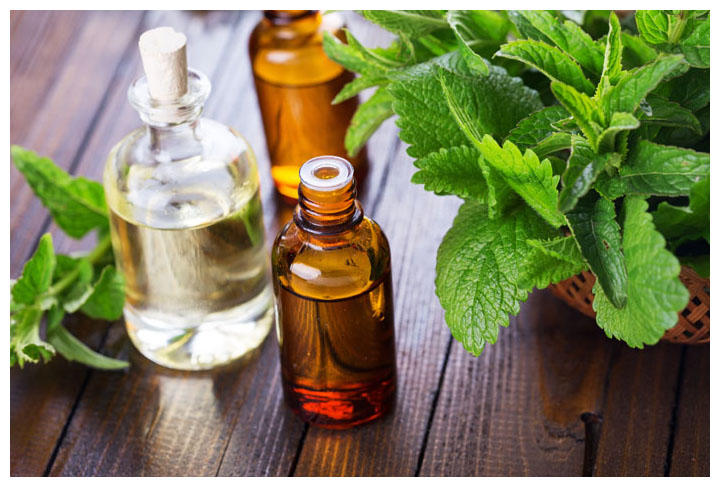
A surprising benefit of peppermint oil for hair is that it functions as astringent.
It is basically oil, but it helps to reduce excessive oil production by your scalp.
Even better, it brings a tingling sensation and works by balancing the scalp’s pH level.
Therefore, if you have a problem with either oily or dry scalp, peppermint oil can help you to get rid of it.
3. Can Promotes Hair Growth
The oil does not only work on the surface of your scalp, but it can actually penetrate inside and stimulate hair follicle.
It promotes hair growth by improving blood circulation, which finally increases oxygen supply.
With tremendous supply of oxygen, hair follicles and roots should grow at their full potential. If you desperately want to have long and healthy hair, peppermint oil can be such good solution for you.
4. Fights Dry Scalp and Dandruff
As mentioned earlier, peppermint oil handles either oily or dry scalp problem. In other words, it does not reduce or increase oil production, but it simply helps to restore it to normal condition.
The most common problem that follows dry scalp is dandruff. As the oil heals the dry condition, dandruff is as well gradually eliminated.
Itching sensation that also usually exists will no longer be a problem. Another good thing is that peppermint oil has a refreshing smell, so you do not need to use any fragrance.
5. Avoid Hair Loss
As peppermint oil stimulates blood circulation to the follicles, it promotes healthy hair growth.
The oxygen supply carried by blood will help to strengthen hair roots. Besides promoting hair growths, it also carries additional benefit by preventing hair loss.
Blood does not only carry oxygen, but it delivers nutrients so your hair roots may absorb essential nourishment in order to stay healthy.
How Do I Use Peppermint Oil In My Hair?
“Do Not Put Peppermint Oil Directly In Your Hair, It MUST Be Diluted”
Adding 3 to 5 drops of peppermint oil into your current shampoo bottle is one thing you can do. See if there are some side effects by reading here.
The best prevention technique is to add up to 3 to 5 drops of peppermint oil into your current shampoo bottle to prevent head lice from attacking your flesh.
Once you add the drops, really shake up the bottle first, before squeezing the mixture out of it.
After washing your hair with this mixture, you can go ahead and condition as usual.
Best Process For Using Peppermint Oil For Hair
- Add 3-5 drops into your shampoo
- Shake the bottle well before use
- Wash your hair thoroughly, every day
- Condition your hair normally after
In order for this shampoo and oil mixture to be 100% effective, you must wash your scalp with this solution every single day.
So as you can tell, peppermint oil is a very powerful remedy that can help prevent head lice from spreading in your hair.
How to Use Peppermint Oil Directly to Your Scalp and Hair
Peppermint oil is a very strong essential oil. It is probably irritating for people with sensitive scalps.
It’s best to mix it with carrier oil to avoid burning sensation. However, it is easy to create a mixture of essential oils, as instructed below.
1. Dilute the Oil
Never apply high concentration of peppermint oil directly to your scalp and hair.
This oil is only used as an additive, so you must mix it with water or other ingredients for hair treatment.
To get the best benefits of peppermint oil for hair, mix it with other essential oils such as jojoba, olive, avocado, or almond.
You can also mix 4 drops of peppermint oil with a cup of water.
Different person may need different composition depending on any underlying condition.
It is wise to consult doctor before applying this treatment to avoid unwanted side effects.
2. Add Almond Oil
A mix of peppermint oil and almond oil is a good composition.
If you intend to use such formula, use 2 oz. of almond oil for 6 drops of peppermint oil.
Mix it inside an amber bottle, so you can shake it well.
3. Part Your Hair
To make it easier, part your hair into some section before applying the solution.
Use a rubber band to secure each section for better results.
4. Apply it to Scalp
As you part the hair into some section, you can easily touch your scalp.
Directly apply the mixture to the scalp and gently massage it. Repeat this process for all sections.
Using peppermint oil for hair treatment is generally considered safe.
Nonetheless, some people may experience unpleasant effects such as skin rashes, headache, and even stomach upset.
Peppermint oil is indeed an effective solution for various problems with hair and scalp, but you need to mix and apply it properly for optimum results.
Control Hair Loss With Peppermint Oil
Are you losing your hair? Worried about hair loss?
If the answer is yes, then peppermint oil and a healthy diet are perfect for starting the restoration process.
Read on to find some of the many contributing factors as to to why this may be happening.
There are many reasons why we can lose hair some of which are common problems that are easily rectified i.e. having a baby, high fever, anaemia, diet, fungal infection, trauma or bump to the head.
The more serious complex problems may include Thyroid Imbalance, Cancer, and Diabetes.
Hair loss can also be an inherited trait in which case you must do the best you can to compensate for the loss.
Loss of hair does worry people and rightly so that you should worry, excessive hair loss can be a normal (temporary) response to something your body may have experienced, so in this case there is nothing to worry about, or it could also be a warning that there is something seriously wrong within the body so professional medical advice should be sort.
Hair is mainly protein it grows about ½ inch per month which is pretty fast, on the scalp it has a life of about 4 years.
There are about 120 000 follicle on the scalp. In normal hair fall you will lose approx. 100 hairs per day.
If the number exceeds 150 per day this is classed as excessive.
An abnormal loss of hair from all over the scalp (i.e. more than 150 hairs per day lost from the scalp is classed as diffuse hair loss.
It results as a reaction to an imbalance within the body. This imbalance may be a temporary one which the body quickly adjusts to or it may be more serious and the body has difficulty in coming to terms with.
There are 3 phases that a hair follicle passes through; they are the growing stage, the resting stage and the falling stage.
If the growing stage is interrupted it can pass straight through to the resting stage, here the hair remains in this stage for 3 months and then falls out.
So if you are suffering from diffuse hair loss you have to go back 3 months before the start of the hair fall and find a cause.
Diffuse hair loss can be divided into two areas;
1. Temporary self-correcting hair loss
(e.g. crash dieting, high fever > 39.5c) two important points to note with this type of hair loss are:
- The hair loss will begin three months after the event causing the hair loss
- No treatment is required to stop the hair loss. It will stop after a few weeks and the amount of hair will return to normal after 6 months. Remember hair is very sensitive to any body imbalance, due to its fast rate of growth. Hair loss can follow the slightest body disturbance.
2. Permanent hair loss until the body imbalance can be corrected
(e.g. Hypothyroidism.)
- Seeking Medical Advice for correct diagnosis is the key to hair loss in this instance.
A healthy body produces healthy hair- although we inflict a great deal of damage to our hair it stands up to a lot of punishment it receives.
With a healthy diet and treating your hair to a peppermint oil treatment once week will promote hair growth and a healthy scalp.
Do this by adding 2 drops of peppermint oil to your favourite deep conditioning treatment and apply and massage into the scalp from roots to tips. After leaving for about 20mins will have your hair and scalp healthy in no time.
Results may vary from person to person.
Peppermint Oil for Joint Pain Relief
Applying some drops of peppermint oil to joints or lower back can relieve pain. Actually, there are only very few evidences supporting this claim.
It is probably the cold yet hot sensation brought by the oil to the skin and joint that helps to relieve the pain.
Peppermint Oil of Skin Care
Peppermint contains high concentration of menthol, so it can give cool sensation when applied directly to skin.
Mild skin irritations and itching are some common problems that can be effectively treated by using peppermint oil.
Ready-to-use skin care products such as toners, creams, and toners also use peppermint oil as an ingredient.
Applying diluted peppermint oil to skin and clothes can effectively repel fleas and mosquitoes.
Peppermint oil uses for human are not only limited to problems with hair and skin.
This essential oil can possibly be consumed with water to relieve certain digestive conditions, too.
Please remember that overusing peppermint oil can be dangerous, so use it cautiously to get the best results and avoid allergic reactions.
Peppermint Oil for Dental Health
As previously mentioned, peppermint oil is a natural anti-bacteria solution.
Thanks to this property, it can easily kill bacteria in your mouth that causes bad breath.
You have to apply a drop of peppermint oil to your tongue and rub it also to the gums to get fresh breath.
Since peppermint oil is also a natural antiseptic, it can fight against almost all teeth germs effectively.
Peppermint Oil To Treat Digestive Problems
After having a meal, your digestive or alimentary tract also carries gas. You can relieve such condition by consuming peppermint oil which is mixed with drinking water.
This method can also help you to get rid of your kinetosis problem (motion sickness or travel sickness). To treat such condition, you should consume it before taking a trip.
You can mix several drops of peppermint oil to a cup of tea to treat heartburn or burning sensation in the chest. This pain sensation often comes from your stomach, but it rises to chest and throat.
In general, peppermint oil can help to relieve common digestive problems such as stomach acid, diarrhea, cramping, nausea, and flatulence.
Peppermint Oil For Head Lice
The question of whether you can use peppermint oil in your hair to help prevent the presence of hair pests, like head lice or louse is an awesome question, and one well worth pursuing.
Preventing louse is one of those annoying little things that should be taken into consideration by people of all ages and backgrounds, as approximately 6 to 12 million individuals in the United States alone have to deal with this frustrating condition of head lice every single year.
This fact is even more prevalent for parents whose children attend school or other social events. They face this problem every year as the pesky little creatures make the rounds from class mate to friends and back again.
Once you are affected, you’ll be constantly scratching your head day and night. In order for your scalp not be a victim of head lice, you must prevent it from happening to you in the first place.
And believe it or not, this can be easily accomplished without a prescription!
What Can I Do To Prevent The Spread?
There are many different ways to prevent these tiny insects from making a home on your scalp and feeding on your blood, but there is one remedy that stands out from all the other solutions.
Peppermint oil drops, recommended for its low cost and effectiveness.
Yes, peppermint oil is not only good for adding a scent to your home or for creating candles, but this oil also has antiseptic and anti-inflammatory properties which can alleviate an itchy scalp and help prevent dandruff from forming, while at the same time, being able to protect you against these tiny wingless insects that are difficult to get rid of.
This remedy also helps to absorb any excess oil present on the scalp, help stimulate hair growth, and can even moisturize a dry scalp.
Peppermint Oil as a Mouse and Ant Repellent
You can get rid of many household pests by spraying peppermint oil to some areas in your place.
Small animals such as ants, mice, and various types of beetles simply cannot tolerate the strong odor of the oil.
Even better, you can mist the leaves of plants with peppermint oil to keep them safe from pests.
Peppermint Oil Side Effects
Peppermint oil is a product of a distillation process of leaves and other parts of peppermint plant.
It is a traditional remedy for various health conditions, but it can cause side effects if used excessively or incorrectly.
Some of the most common peppermint oil side effects are briefly outlined in the following passages.
1. Skin irritation
It is generally safe to apply a small dose of peppermint oil to the skin, but some people may develop certain allergic reactions or irritations such as rashes, burns, hives, or contact dermatitis.
As a matter of fact, skin irritation is one of the most commonly reported conditions associated with external application of the oil.
Depending on the dose, allergic reactions may include redness or mild itching to extreme conditions.
2. Breathing problems for children and infants
Most adults can safely use peppermint oil in small doses, but it is best to avoid applying it to infants and children.
When applied directly to the face of infants, peppermint oil can cause life-threatening problems such as spasms that inhibit breathing.
In addition, children may experience burning sensation in their mouths after drinking peppermint tea (tea made with peppermint oil).
3. Allergic reaction to menthol
People who are allergic to menthol should avoid using inhaled preparation of peppermint oil for nasal congestion.
Menthol is the primary active ingredient of peppermint, which acts as expectorant. Instead of healing your nasal congestion, the remedy can cause congested airways.
If you are allergic to menthol, you can avoid peppermint oil side effects by not using such remedy at all.
It is best to totally avoid using it regardless of the preparations including nasal ointments and peppermint tea.
4. Interactions with some prescription drugs
When consumed orally, peppermint oil can cause heartburn.
Peppermint oil may also interact with some prescription drugs and cause dangerous side effects.
In most cases, capsules containing peppermint oil are coated to reduce the risk of heartburn.
When consumed at the same time with prescription medications such as antacids and cyclosporine, the coating can break down more easily.
Besides the aforementioned medications, any over-the-counter or prescription drug for acid reflux and stomach acid possibly triggers the same interaction with peppermint oil capsules.
5. Toxic in large amounts
Peppermint oil actually offers plenty of benefits, but it causes dangerous health conditions when used excessively or in large amount at a time.
This essential oil is toxic in large dose, but immediate treatment increases the likelihood of recovery.
The oil is highly concentrated, so you should limit your intake each day to two capsules or the equivalent of 0.2 milliliters.
Symptoms of peppermint oil side effects due to overdose include slow heartbeat, urinary changes, persistent vomiting, nervous system impairment, and skin flushing.

